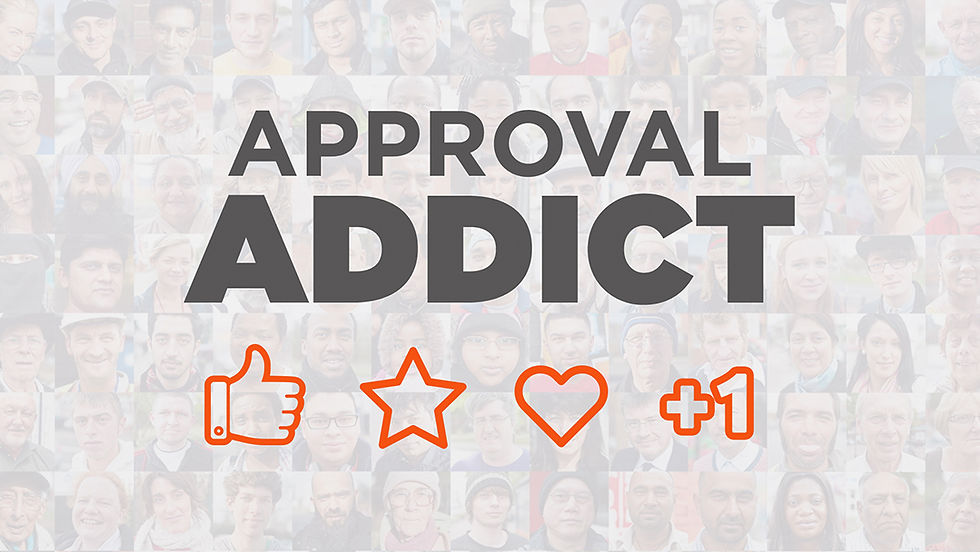Fr Jim Cogley

'Approval Addiction' is where I need external validation in order to feel good about myself; it is where, when someone smiles at me with approval and appreciation, I feel good, but a frown or criticism can leave me feeling like a deflated balloon. Always looking over my shoulder, and being acutely aware of how others might react is a sure way of not steering a straight course and a definite way to be untrue to myself. It is also very debilitating and disempowering because it divests personal power from the inside where it belongs to the outside where it has little value.
Everyone likes to be liked and we all need validation and approval. It is when we become dependent on others approval that it becomes addictive and changes who we are. It is when our behaviors become driven by the desire to elicit the approval of others that symptoms such as stress, anxiety and even depression begin to creep in. We might feel worried and not know why, or have no voice in certain situations. In an extreme form we might even experience being paranoid. The paradox of Approval Addiction is that we crave compliments and yet can’t take them because our self-esteem is so low. At the same time we take all forms of criticism badly and automatically assume that feedback is negative rather than constructive. We then hear something not as it is but as we are and so react negatively.
The approval addict is always bending to other peoples needs before their own and when this is not acknowledged it is very disheartening. The roots of this are usually to be found in childhood and in relation to our parents or primary care givers. How few were capable of giving us unconditional love. Sometimes we were there to meet their needs even more than they were there to meet ours. It was in meeting their needs that we got recognition and found value in ourselves. So from an early age we developed an acute sensitivity for the needs of others while our own needs went unrecognized. For so many in adult life the pattern continued, and it was always about putting others before themselves. Being a care giver who never took care of oneself became the modus operandi. For such individuals, the idea of loving oneself, and taking care of ones own needs was tantamount to selfishness. It was always a case of loving ones neighbor but never AS oneself.
Comentarios